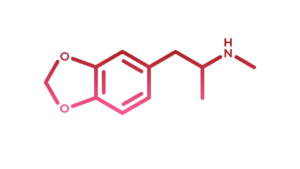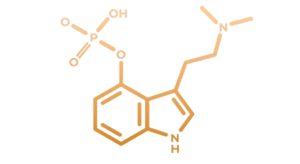Can you solve neglected burnout with psychedelic therapy?
Therapeutic sessions with psychedelics, such as MDMA and psilocybin, can potentially catalyse recovery in people with neglected burnout. These psychedelics have shown effects on emotional processing and reducing anxiety and depression. During psychedelic sessions, participants may experience feelings of increased openness and introspection, which can help explore underlying emotions and traumas underlying burnout.
Ignoring burnout
Life in burnout feels like a long journey through a fog in which the balance between body and mind has become disturbed. Daily tasks become an arduous task and contact with yourself becomes weakened. This state is the result of a long process in which inner reserves are depleted. A sense of distance from who you really are emerges. Going through this period requires attention to both physical and mental states.
The causes of burnout are often complex and multifaceted. Both external factors and personal choices come into play. Prolonged work pressure, lack of relaxation and failure to take recovery moments contribute to tension. Personal ambition and inability to set limits can also take a toll on your energy. Underlying beliefs and a mismatch between expectations and reality prevent the body's signals from being heard
The consequences
The consequences of neglected burnout affect all aspects of existence. Physical complaints such as sleep problems, palpitations and muscle aches are often seen. At the same time, emotional symptoms such as feelings of emptiness and isolation arise. This leads to a vicious circle where mental and physical states affect each other negatively. Quality of life decreases as burnout progresses and a sense of helplessness creeps in.
Chemical adrenal exhaustion
With prolonged stress, the adrenal glands become depleted. These glands produce hormones that help your body cope with stress. When demand is high for too long, this system becomes disrupted. The balance between cortisol and other hormones disappears and this affects both energy levels and the immune system. Research shows that this chemical depletion contributes to feelings of fatigue and lack of resilience, making recovery especially challenging.
The role of the amygdala
The amygdala is an essential part of the brain involved in emotional processing. During prolonged stress, this structure often reacts with increased vigilance and anxiety. An overactive amygdala amplifies negative emotions and can lead to a continuous state of alertness. This observation is echoed in research showing that restructuring this brain region can help improve emotional balance. Modifying activity in the amygdala thus offers an opportunity to break old patterns.
Recovering without psychedelics
Traditional recovery programmes focus on talks, coaching and mindfulness. These methods help reduce stress and help restore mental balance. While they are effective for many people, some experience that the accumulated patterns are so deeply rooted that conventional therapies do not always provide sufficient breakthrough. Recovery without psychedelics is then often slow and can perpetuate feelings of stagnation.
MDMA in burnout recovery
MDMA therapy for burnout may be effective because of MDMA's potential impact on the amygdala and stress response. Several scientific studies have shown that MDMA can reduce activity in the amygdala and alter functional connectivity between the amygdala and other parts of the brain.
A study conducted by Carhart-Harris et al (2015) showed that after a single dose of MDMA, functional connectivity between the amygdala and prefrontal cortex was reduced. This suggests that MDMA may have a temporary dampening effect on the amygdala, the part of the brain involved in processing emotions, including anxiety and stress.
Moreover, research has shown that MDMA increases the release of neurotransmitters such as serotonin and oxytocin, which are involved in regulating mood, empathy and social behaviour. This increased neurotransmitter activity could potentially help reduce stress and promote stress reduction during MDMA therapy.
Psilocybin for neglected burnout
Psilocybin is being increasingly researched as a treatment method for burnout. During a properly supervised psilocybin session, this substance can provide insights that otherwise seem unattainable. Clients report that the experience helps them let go of old thought patterns and experience a sense of renewed connection. This can help reduce stress in burnout. Scientific publications show that psilocybin can promote neuroplasticity. This helps the brain's ability to make new connections and further enable recovery.
Another recent study has shown that psilocybin can reduce the production of inflammatory markers such as TNF-α, IL-6 and CRP. These markers are involved in inflammatory responses in the body and, when elevated for long periods, can contribute to symptoms of depression and anxiety. By lowering inflammation levels, psilocybin may also potentially help reduce stress and burnout symptoms in this way.
Our approach at Triptherapie
At Triptherapie, a personal and safe approach is key. Experienced facilitators create an intimate atmosphere where there is room for processing inner blockages. A psychedelic session offers the opportunity to break through limiting patterns. You are further supported by us with integrations in which the insights gained return to daily life. This path is based on both scientific insights and practical experiences and focuses on restoring balance between body and mind. The result is a tailor-made path that offers room for growth, connection and renewed energy.
Contact or intake
Would you like to sign up for a psychedelic session at Triptherapie? Fill in the free intake now. Do you have any questions? Then go through our FAQ section or contact us.
Frequently asked questions about burnout
When the body and mind are under high pressure for long periods, burnout can occur. In many cases, this signal is ignored and exhaustion grows unnoticed. Neglected burnout goes beyond the standard signs of stress. It strikes at the heart of a person's joy and creativity and can lead to feelings of despair and isolation. The focus here is on restoring balance in the nervous system and regaining one's own strength.
It means that the signals of excessive stress and exhaustion are ignored for a long time. The result is a deep-seated feeling of fatigue that permeates both physically and emotionally.
Prolonged stress disrupts hormonal balance by depleting the adrenal glands. This reduces the body's resistance to stress and contributes to symptoms.
MDMA can induce a heightened sense of connection and safety. Under the guidance of a therapist, this allows deep-seated emotional blockages to be explored and processed.
Psilocybin is used in a controlled setting and suitability is determined beforehand in a personal interview. A safe environment and professional guidance are essential here.
General FAQ
Should you be looking for another question and answer? You can then also choose to use the search function on our site, consult the frequently asked questions section or ask our chatbot Trippy.
Recent Q&A questions
Psychedelic session for clients from abroad
How do I book psychedelic therapy in the Netherlands when coming from abroad? What are the possibilities?
NPS law and MDMA analogues
Which analogues of MDMA will become illegal from 1 July 2025 with the entry into force of the amended opium law?
Psychedelic therapists
Which of the therapists at Triptherapie are trained psychologists and the like?
Truffle ceremony with psilocybin
Approximately how many truffles or mg of psilocybin do you get at magic truffle ceremonies?

